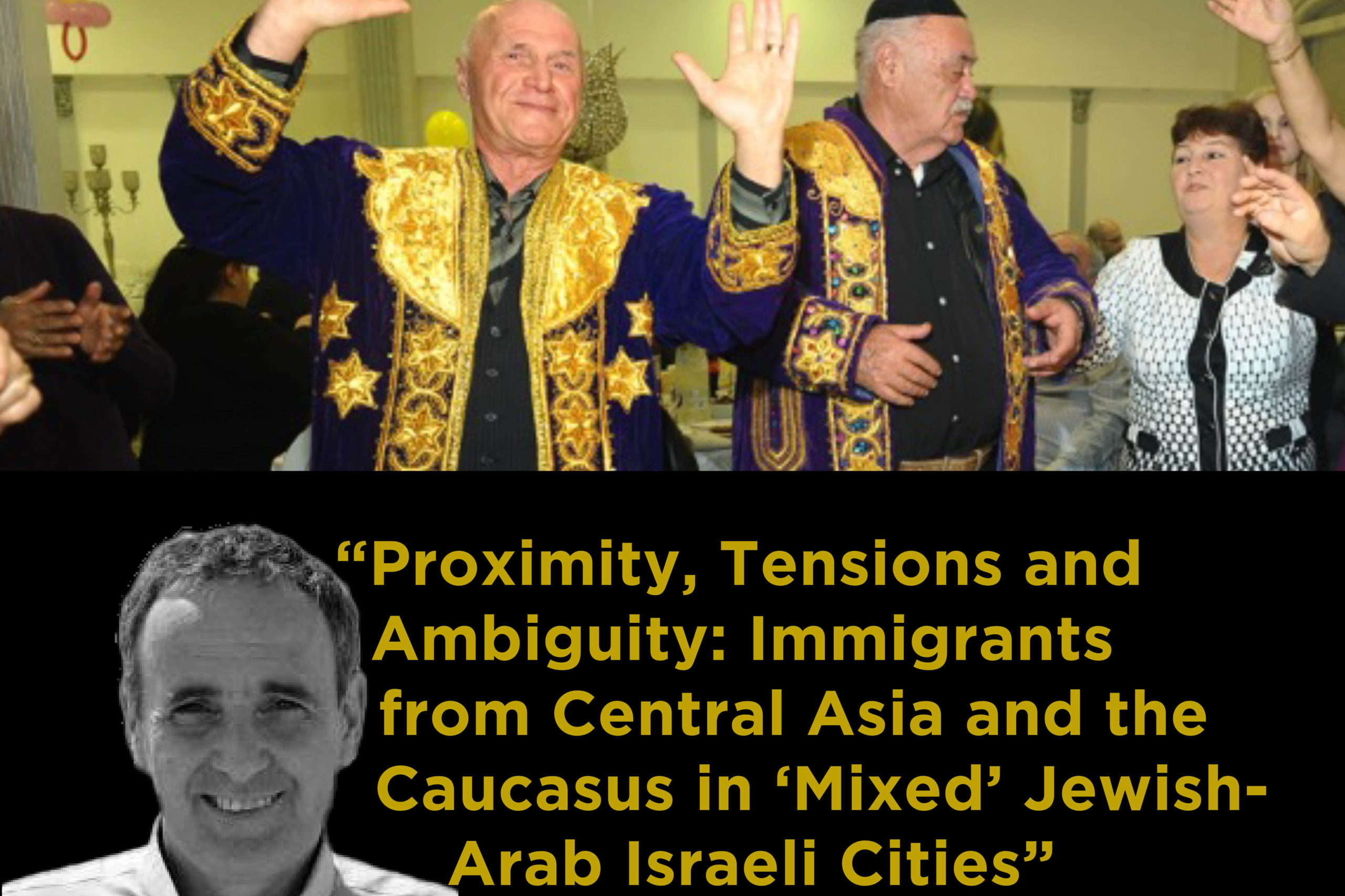
“Proximity, Tensions and Ambiguity: Immigrants from Central Asia and the Caucasus in ‘Mixed’ Jewish-Arab Israeli Cities”by Chen Bram
Complimentary lunch provided
Serling Institute Faculty Research Seminar – Open to All!
Friday, February 28th 12:00-1:30 pm, B342 Wells Hall
619 Red Cedar Rd
This paper presents a comparative study of intergroup relations between Jewish immigrants from Central Eurasia and indigenous Arab-Palestinians in two ‘mixed’ Jewish-Arab cities: Ramle and Acre. Combining anthropological and historical perspectives, the research examines the myriad factors that explain different post-migration intergroup relations in mixed cities. Kavkaz (“Mountain”) Jews and Central Asian (“Bukharan”) Jews lived in areas with Muslim majorities and 300,000 of them migrated to Israel in the 1990’s. In Ramle, the memory of previous Jewish-Muslim relations creates a moderating effect on Jewish-Arab relations. In Acre, however, positive memories of former Jewish-Muslim relations are understood as a contradiction to current relations with Arab neighbors and has a negative effect on the migrants’ perceptions of Jewish-Arab relations.
Chen Bram is an anthropologist, educator and organizational psychologist who is a senior lecturer in the Jerusalem Multidisciplinary College, and a research fellow at the Truman Institute for the Advancement of Peace, the Hebrew University, Jerusalem. Bram conducted field work in the Caucasus, Central Asia, Israel, and among post-Soviet immigrants in NYC, has worked as an engaged anthropologist on multicultural policy, and has served as a Visiting Professor at UPenn; Clark University; MSU, and the University of Florida.